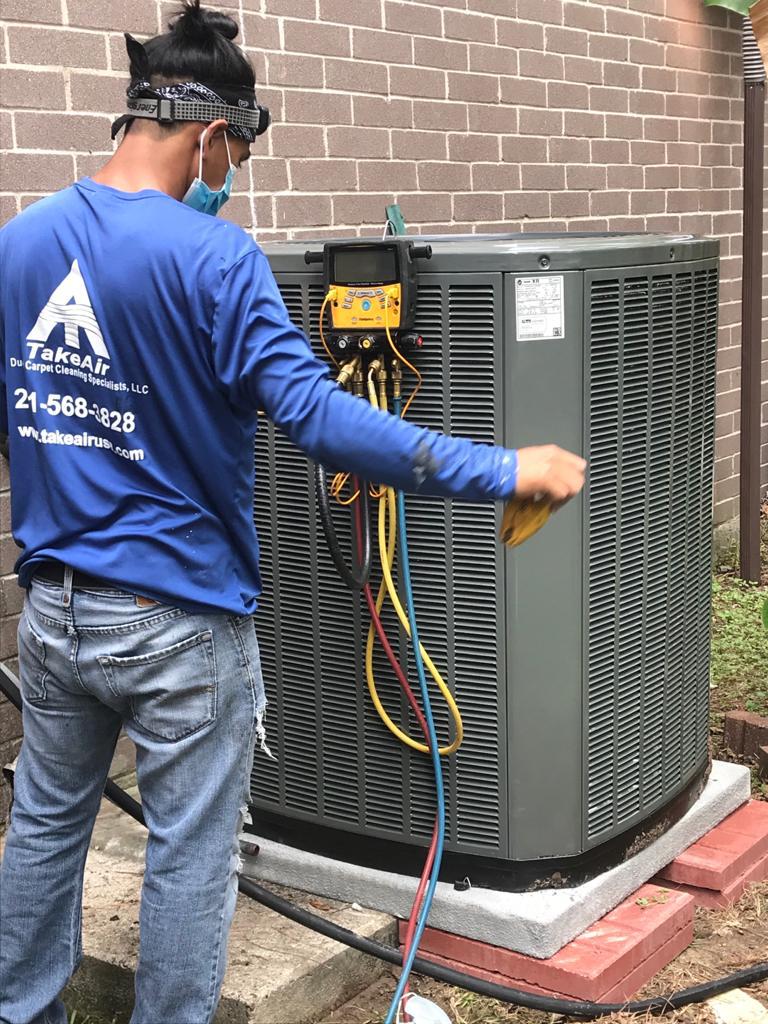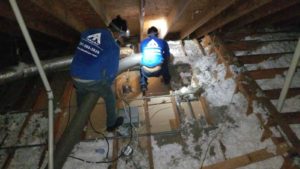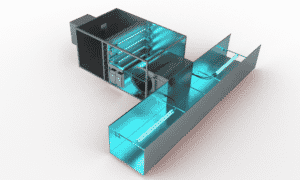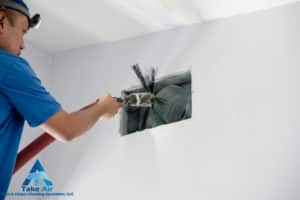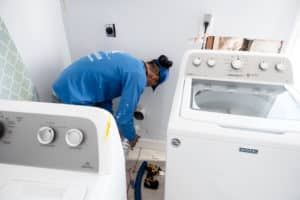If you are looking for A/C repair in Houston, it’s important to know when it’s time to repair or replace your A/C system. Because nothing makes a house feel more like a home than having a comfortable place to relax after a long day.
For many people, this means having a functional air conditioner. Unfortunately, air conditioners don’t last forever. So, what do you do when your trusty A/C unit finally stops working?
You have two options: repair or replace. But, how do you know which is the best option for your home? Unfortunately, there’s no easy answer. The best course of action depends on a number of factors, including the age and condition of your unit, the severity of the damage, and the cost of repairs.
We will explore all of these factors in more detail below to help you make an informed decision about whether to replace or replace A/C in Houston
According to Energy Star, the average lifespan of an air conditioner is about 15-20 years, a heat pump is about 16 years, and furnace functions for about 15-20 years. HVAC system manufacturers usually offer a limited warranty for their products, which can give you peace of mind if your unit breaks down within the first few years.
However, once the warranty expires, you’re on your own.
So, how do you know if it’s time to repair or replace your old air conditioner? Here are a few things to consider:
When to Repair Your Air Conditioner
There are a few instances when it might make sense to repair your air conditioner instead of replacement. For example:
If your unit is still relatively new (5-10 years old), it might make more sense to repair it since it probably won’t need to be replaced for several more years.
Repair might be the best option if the damage is minor and can be easily fixed, such as a blown fuse or a broken thermostat.
The formula for Calculating Repair Costs
There is a formula you can use to calculate the repair vs. replacement decision, which takes into account the cost of repairs, the efficiency of your unit, and the expected lifespan of a repaired unit.
Use this formula to help you make your decision:
R = repair cost/ (new system cost x CF)
Where R is the ratio of repair costs to replacement costs, CF is the capacity factor (a number between 0 and 1 that reflects the efficiency of your unit), and new system cost is the cost of a new unit minus any rebates or tax credits you might be eligible for.
For example, let’s say the cost to repair your air conditioner is $1,000, and the cost of a new unit is $5,000.
If your unit has a capacity factor of 0.9 (which means it’s 90% efficient), the repair vs. replacement ratio would be:
R = 1,000/ (5,000 x 0.9) = 0.22
This ratio means it would cost you 22% of the price of a new unit to repair your old one.
Since this number is less than 1, it might make sense to repair your air conditioner instead of replacing it.
Following are some essential points to help you decide whether to repair or replace your home A/C system.
1) Age of unit.
We know the average life expectancy of an A/C unit is 15-20 years. If your unit is over 10 years old, you may want to start saving for a replacement. When an A/C unit gets older, it starts to break down and become less efficient. This means your energy bills will go up as the unit has to work harder to keep your home cool. Not to mention, repairs will become more frequent the older the unit gets.
How would you know the age of your unit? Look for the serial number on the manufacturer’s sticker on the condensing unit (the big box outside). The first four digits of the serial number tell you the week and year it was made. So, a unit with a serial number of 1208 would have been made in the 12th week of 2008.
2) Frequent repairs.
If you frequently repair your A/C unit, it may be time to start considering replacing it. The money you spend on repairs could be put towards a new, more efficient unit. Not to mention, the older your unit gets, the more repairs it will need.
Now, this is true for any mechanical device – the more you use it, the more wear and tear it will experience. But, with an A/C unit, there are some parts that are more prone to breaking down than others. These include the compressor, fan motors, and coils. If you find yourself constantly repairing these parts, it’s probably time for a new unit.
However, repairing your unit may be the better option if you only have to repair minor parts, such as the thermostat or ductwork. But, be sure to consult with a professional to get their opinion before making a decision.
3) Higher energy bills.
Now, this is a crucial part of deciding whether to repair or replace your A/C unit. If your energy bills have gradually gone up over the years, it’s probably due to your unit becoming less efficient as it ages. First, get it properly serviced to make sure it’s running as efficiently as possible. If that doesn’t help, then you may want to start thinking about replacing your unit.
A new A/C unit will be much more efficient than your old one, which means your energy bills will go down. In fact, you may even be eligible for a tax credit if you purchase a unit that meets certain energy-efficiency standards.
4) R-22 refrigerant.
If your A/C unit uses R-22 refrigerant, you’re going to have to replace it when it breaks down. That’s because the production of R-22 has been phased out, and it’s no longer available. So, when your unit needs more refrigerant, you’ll have to replace the entire unit.
5) Noisy operation.
If your A/C unit is making strange noises, it could be a sign that you need to get a professional to take a look at it. These noises could be indicative of bigger problems, such as a loose fan belt or compressor issues. When left unchecked, these problems could lead to a complete breakdown of your unit.
So, make sure to get it repaired in this case as soon as possible. This way, you can avoid a complete breakdown and the need to replace your entire unit.
6) Inadequate cooling.
If your A/C unit isn’t cooling your home as well as it used to, there could be a number of reasons why. First, make sure that it’s properly serviced and that all the filters are clean. If that doesn’t fix the problem, then it may be time to start thinking about replacing your unit.
7) Home additions or renovations.
If you’ve made any additions or renovations to your home, your A/C unit may no longer be adequate. That’s because the unit was sized for the original square footage of your home. So, if you’ve added on to your home or finished your basement, you may need to get a bigger unit.
Conclusion
There you go! We explained seven signs that indicate when to go for the option of A/C repir in Houston or the more expensive option of A/C replace in Houston. But, as we said before, the decision of to repair or replace A/C in Houston is a personal one. Be sure to consult with a professional before making a final decision.
Also, make sure to work on the formula we provided. This way, you can calculate the cost of repair vs replacement and make an informed decision. Lastly, don’t forget to factor in the cost of your time when making this decision. After all, your time is valuable!
TakeAir has been providing A/C repair and replacement services in Houston for over 20 years. We have been helping homeowners with their A/C needs and providing them with honest advice. Our professional technicians have helped many homeowners decide whether to repair or replace their A/C units. So, if you’re still not sure what to do, give us a call and we’ll be happy to help you out.
Call (281) 568-3828 for all your A/C repair or replacements needs in Houston TX

